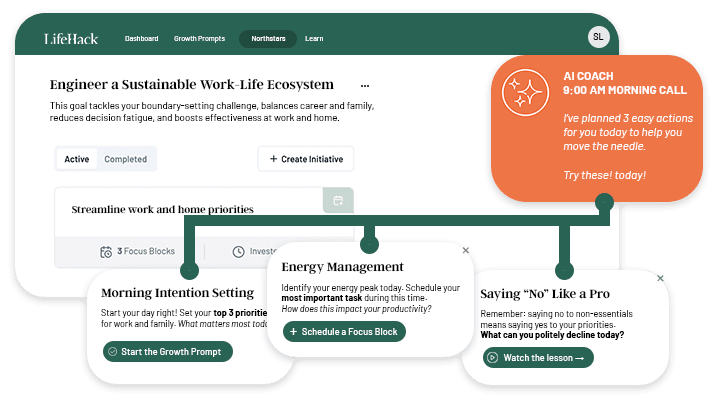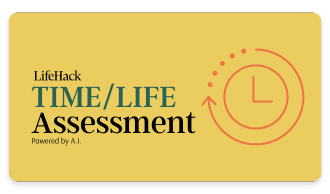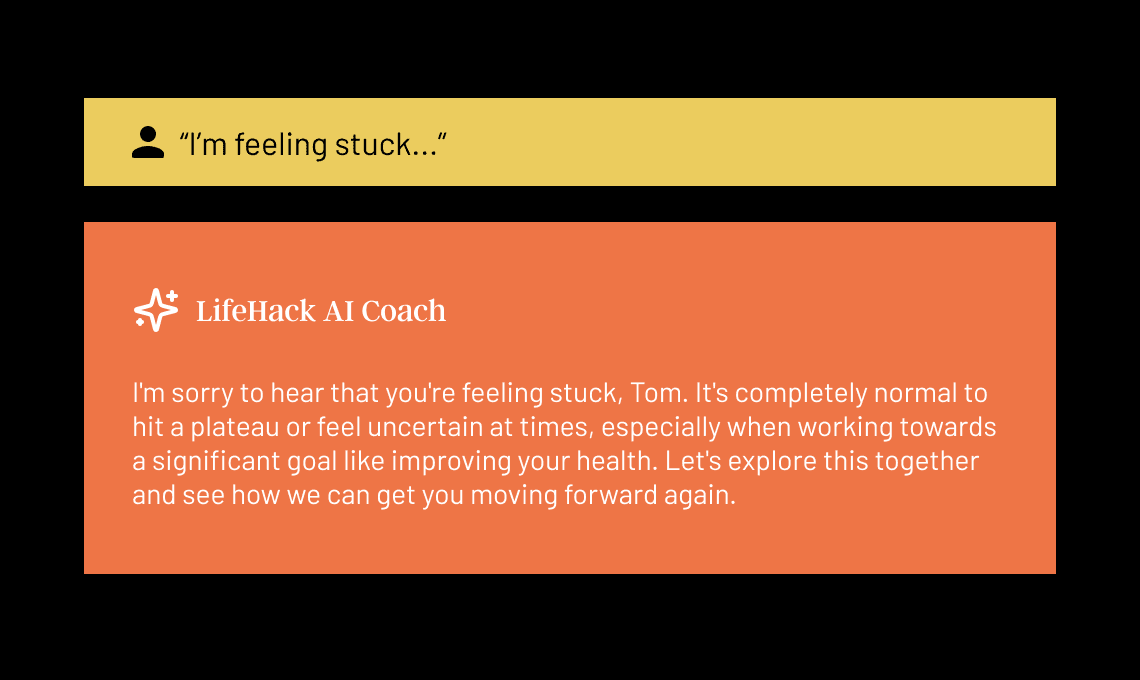Possessing strong communication skills will help you in every phase of your life. This is especially true in the workplace.
I have personally worked with several leaders who were masters of communication. A few were wonderful speakers who could tell a great story and get everyone in the room engaged. Those of us in attendance would walk away feeling inspired and eager to help with what came next. Others were very skilled at sharing a clear direction and job expectations.
I knew exactly what was expected of me and how to achieve my goals. This was the foundation of an energized and vibrant role I was in. What I have found is strong communication skills are incredibly helpful and sometimes critical in how well we perform at work.
Here we will take a look at how to improve communication skills for workplace success.
Table of Contents
5 Ways to Improve Communication Skills
There are many tips, tricks, and techniques to improve communication skills. I don’t want to overwhelm you with too much information, so let’s focus on the things that will provide the biggest return on your time investment.
Most of these tips will be fairly easy to become aware of but will take time and effort to implement. So let’s go!
1. Listen
Ever heard the saying you have two ears and one mouth for a reason? If you haven’t, then here’s the reason:
Being a good listener is half the equation to being a good communicator.
People who have the ability to really listen to someone can then actually answer questions in a meaningful way. If you don’t make the effort to actively listen, then you are really doing yourself and the other person a disservice in the communication department.
Know that person who is chomping at the bit to open his or her mouth the second you stop talking? Don’t be that person. They haven’t listened to at least 1/2 of what you’ve said. Therefore, the words that spill out of their mouth are going to be about 1/2 relevant to what you just said.
Listen to someone completely and be comfortable with short periods of silence. Work on your listening skills first and foremost: How to Practice Active Listening (A Step-By-Step Guide)
2. Know Your Audience
Knowing your audience is another critical component to having strong communication skills. The way you interact with your manager should be different than how you interact with your kids. This isn’t to say you need to be a different person with everyone you interact with. Far from it.
Here is a good way to think about it:
Imagine using your the same choice of words and body language you use with your spouse while interacting with your boss. That puts things in a graphic light!
You want to ensure you are using the type of communication most relevant to your audience.
3. Minimize
I have lunch with a business associate about 3 times a year. We’ve been talking for several years now about putting a business deal together.
He is one of those people that simply overwhelms others with a lot of words. Sometimes when I ask him a question, I get buried beneath such an avalanche of words that I’m more confused than when I asked the question. Needless to say this is most likely a large portion of why we never put the deal together.
Unlock Your Time Potential: From Chaos to Control
Discover how to reclaim your time and transform chaos into productivity with our comprehensive Time/Life Assessment.
If you're ready to take control of your time and boost your efficiency, don't miss this opportunity to get a personalized analysis and action plan.

Don’t be like my lunch business associate. The goal of talking to or communicating with someone is to share actual information. The goal is not to confuse someone, it’s to provide clarity in many cases.
State what needs to be stated as succinctly as possible. That doesn’t mean you can’t have some pleasant conversation about the weather though.
The point is to not create such an onslaught of words and information that the other person walks away more confused than when they started.
4. Over Communicate
So this probably sounds completely counter intuitive to what I just wrote about minimizing your communication. It seems like it might be but it’s not.
What I mean by over communicating is ensuring that the other person understands the important parts of what you are sharing with them. This can be done simply yet effectively. Here’s a good example:
Most companies have open enrollment for benefits for the employees in the fall. The company I work for has open enrollment from November 1 to 15. The benefits department will send out a communication to all employees around October 1st, letting them know open enrollment is right around the corner and any major changes that year. There’s also a phone number and email for people to contact them with any questions.
Two weeks later, we all get a follow up email with basically the same information. We get a 3rd communication the week before open enrollment and another one 1 day before it starts.
Finally, we get 2 emails during enrollment reminding us when open enrollment ends.
There’s minimal information, it’s more of a reminder. This is effective over communication.
5. Body Language
The final critical component to how to improve communication skills for workplace success is body language. This is something most of us have heard about before but, a reminder is probably a good idea.
When I am in a meeting with someone I am comfortable with, I tend to kind of slouch down in my chair and cross my arms. When I catch myself doing this, I sit up straight and uncross my arms. I remember that crossing arms can many times be interpreted as a sign of disagreement or conflict.
In general, the best rule of thumb is to work towards having open body language whenever possible at work. This means relaxing your posture, not crossing your arms, and looking people in the eye when speaking with them.
When you are speaking in front of others, stand up straight and speak in a clear voice. This will convey confidence in your words.
Take a look at this guide to improve your body language: 11 Incredible Ways You Should Try Now To Improve Your Body Language
How Communication Skills Help You Succeed
Strong communication skills pave the way for success in many ways. Let’s look at a few of the big ones.
Create a Positive Experience
Here are two examples of how well developed communication skills helps create a positive experience:
When I first moved to the city I now live in, I began a job search. Prior to my first live interview, I was told an address to go to. Upon arriving at the address provided, I drove around and around attempting to find the location. After 15 minutes of circling and looking for the address, I finally grabbed a parking spot and set out on foot.
What I discovered was the address was actually down an alley and only had the number over the door. No sign for the actual company. The person that gave me those very unclear directions provided a bad experience for me.
Had they communicated the directions to get there in a clear manner, my experience would have been much better. Instead the entire experience started off poorly and colored the entire meeting.
As a recruiter, I frequently provide potential candidates with information about a job I’m speaking to them about. In order to do this, I also provide a picture of the overall company, the group they might be joining, and how their role fits in and impacts the entire company.
Time and time again I have been told by candidates that I have provided the clearest picture of a company and role they have ever heard. They have a positive experience when I clearly communicate to them. Even when the position does not work out for them, often times they will want to stay in touch with me due to the open communication and beneficial experience they had during the interviewing process.
Strong communication skills will provide a positive experience in virtually any interaction you have with someone.
Help Leadership Skills
It’s certainly a skill all its own to be able to lead others.
Being a mentor and guiding others towards success is a major hallmark of great leaders. Another characteristic of effective leaders is the ability to communicate clearly.
As I referenced above, having a leader who can plainly articulate the company’s mission and direction goes a really long way towards being the Captain of the boat that others want to follow. It’s like saying “here’s our destination and this is how we are going to get there” in a way that everyone can get on board with.
Another critical component of everyone helping to sail the boat in the right direction is knowing what your portion is all about. How are you helping the boat move towards its destination in the manner than is consistent with the leaders’ vision?
If you have a boss or a manager that can show you what it takes for not only you to be successful, but also how your performance helps the company’s success then you’ve got a winner. A boss with superior communication skills.
Build Better Teams
Most of us work in teams of some sort or another. During the course of my career, I have led teams up to 80 and also been an individual contributor.
In my individual contributor roles, I have been part of a larger team. Even if you are in business for yourself, you have to interact with others in one manner or another.
If you have strong communication skills, it helps to build better teams. This is true whether you are in an IT department with 100 other fellow programmers or if you own your own business and have customers or vendors you communicate with.
When you showcase your robust ability to communicate well with others while interacting with them, you are building a better team.
Bottom Line
Possessing strong communication skills will help you in many facets of your life and most certainly, in the workplace.
Good communication helps create better teams, positive experiences with those we interact with, and are critical for leadership.
There are numerous tactics and techniques to be used to improve communication skills. Here, we’ve reviewed how to improve communication skills for workplace success.
Now, go communicate your way to success.
More Tips for Effective Communication
- Conflict Management Styles for Effective Communication at Work
- How to Master Effective Communication Skills at Work and Home
- How to Work with Different Communication Styles in the Office
- 13 Best Communication Books for Stronger Social Skills & Relationships
Featured photo credit: HIVAN ARVIZU via unsplash.com
Ready for a Goal Breakthrough? Unlock Your Personalized Strategy

Experience the power of a strategy tailored just for you.
Our personalized system provides:
- Custom-crafted action steps based on your unique situation
- Insights tailored to your specific challenges and strengths
- A personalized roadmap to turn your goals into reality
Tailored recommendations powered by smart analysis















































